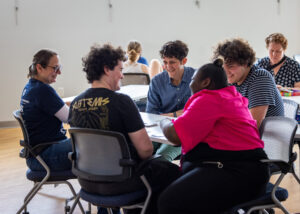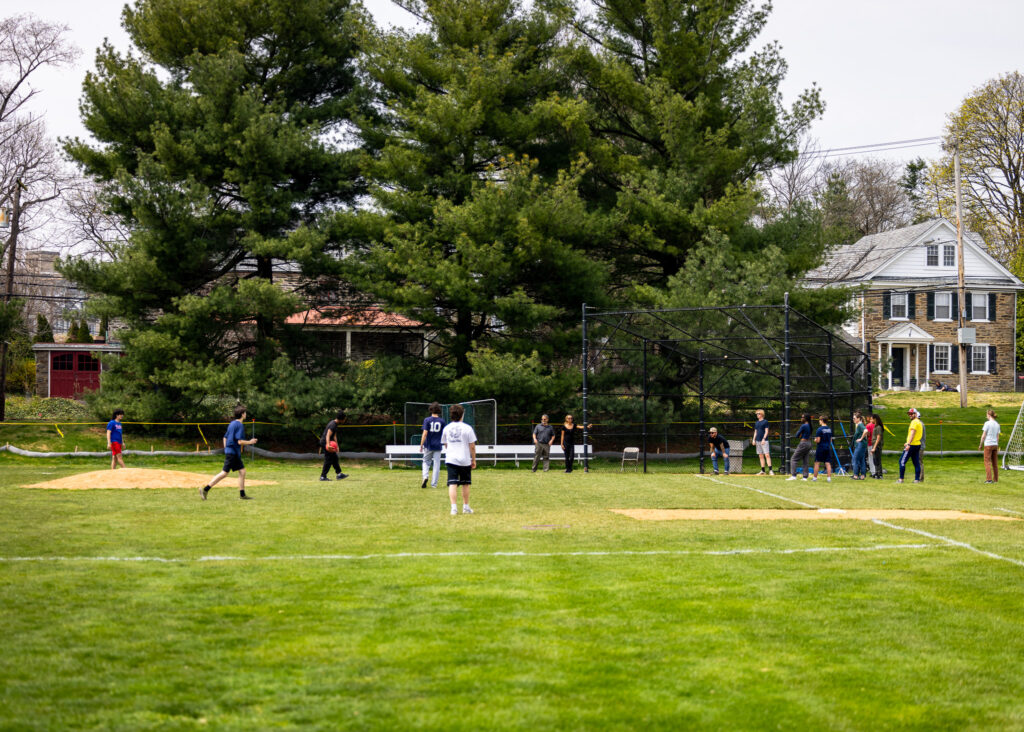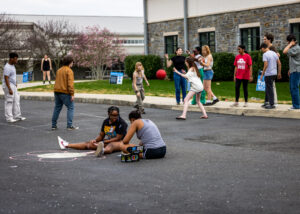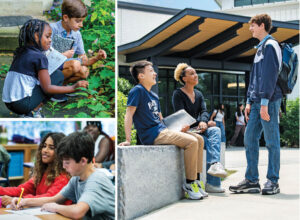Across much of the anglophone world, young people are having a hard time. Rates of depression and anxiety in teenagers are rising, driven in part by social media, cynicism about the state of the world and anxiety about their futures. And since young people spend nearly half of their waking hours in an educational setting during the week, schools need to be ready to address these challenges proactively.
Upper School Director Brendon Jobs is well aware of these challenges. “We need to be working together to steward the AFS community in ways that allow it to be a homeplace for us all,” writes Brendon. “We need spaces to go to find rest, but also places that challenge us to grow. Places that build resilience and give us time to reflect on what we’ve learned. CommUNITY Day helps us start that work.”
Led by Mikael Yisrael, Director of Equity, Justice and Engagement, CommUNITY Day is an annual event in Upper School centered around the Quaker testimony of Community—the relationships that hold us, and the deep listening required to build empathy for different lived experiences. Notably, the day is also a tech-free day where the phones and ear buds disappear to foster face-to-face engagement without distraction.

The theme of this year’s CommUNITY Day was directly relevant to the question of student wellness, developed in coordination with student delegates who attended the Student Diversity Leadership Conference in the fall. They came away with an important question for their fellow students: How can we intentionally create moments of joy as a community?
“In case it’s not obvious, there are so many benefits to experiencing joy,” says Mikael. “Joy fosters positive relationships, enhances our physical health and boosts our mental health, increases our resilience. It leads us to a happier, healthier life.”
Students saw a screening of Chasing Childhood, a feature length documentary that “explores how free play and independence have all but disappeared from kids’ lives, supplanted by relentless perfectionism leading to record rates of anxiety and depression, a situation now compounded by the pandemic.” Students participated in discussions around the film, highlighting some of the parallels they saw in their own lives and how best they could make a change going forward. In anonymous reflections, students shared some of these thoughts with the school:
“Society today tends to disregard the joys of childhood and focus more on pushing their kids to be successful in their future,” one student writes. “But the journey to that success is burning out children today, including myself. Why are we being faced with adult problems?”

Every generation has faced its own unique challenges, but students growing up today are seeing the world from a radically different perspective. They have unprecedented access to information, and limited tools to tell misinformation from disinformation from partial and whole truths; a parallel social experience in the digital world; and a greater degree of oversight and monitoring from parents and guardians.

“I can’t remember the last time I just went outside to go meander with my neighbors or simply just to be,” one student reflects. Another writes, “I never used to play on public playgrounds, only at school, and I don’t think I ever really learned that I could get hurt and be ok until I got older.”
In the afternoon, students gathered to connect as a whole community to try to intentionally foster the joy of freedom and play that they had spent the day reflecting upon. Kickball, card games, crafting and free play – students had the opportunity to choose where they wanted to spend their time, meet new friends and – yes – meander!
“Cultivating joy is a learned skill,” says Mikael. “It’s mental, spiritual, emotional, physical, and relational crossfit training. Joy is a muscle that needs to be exercised daily. Otherwise, atrophy could lead to apathy.”

